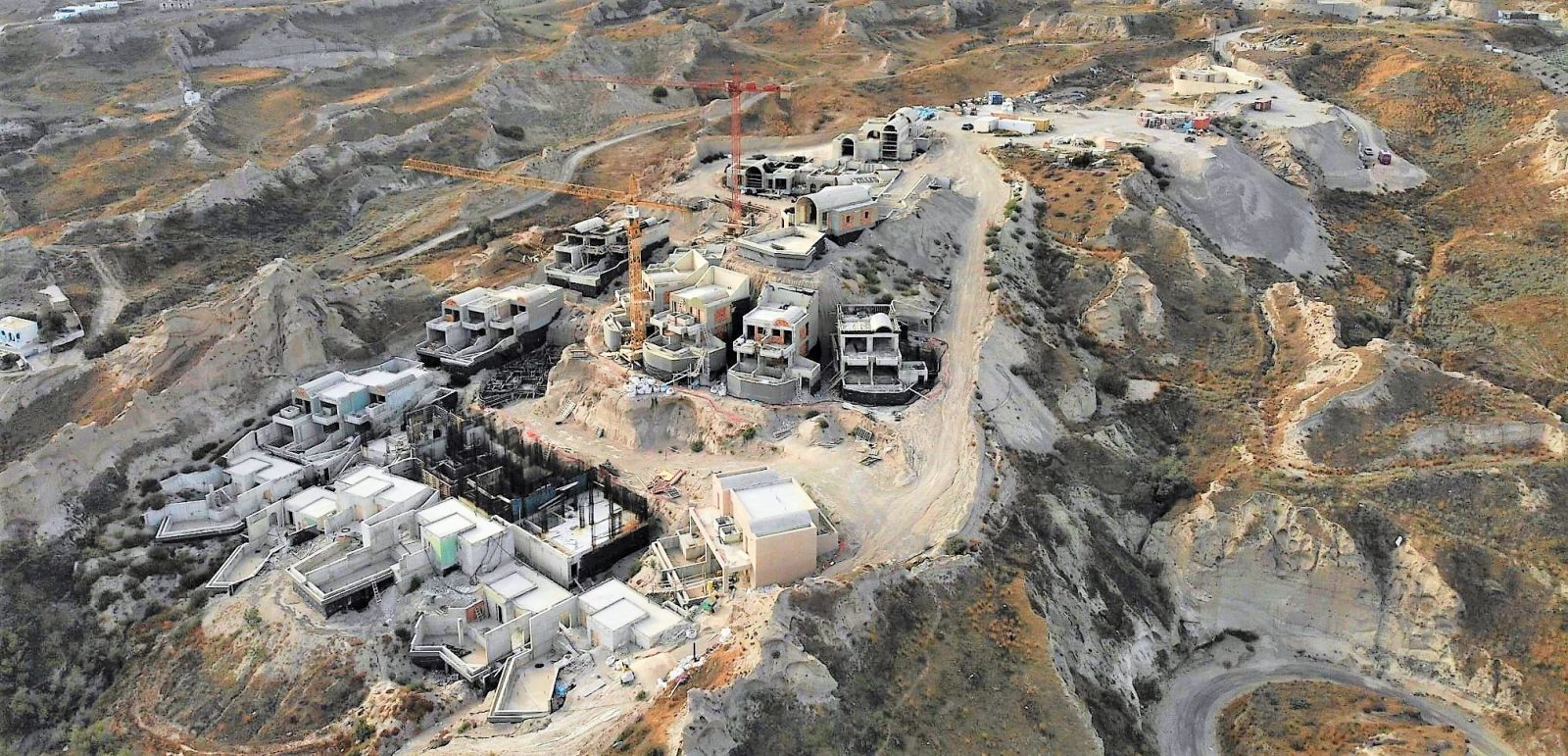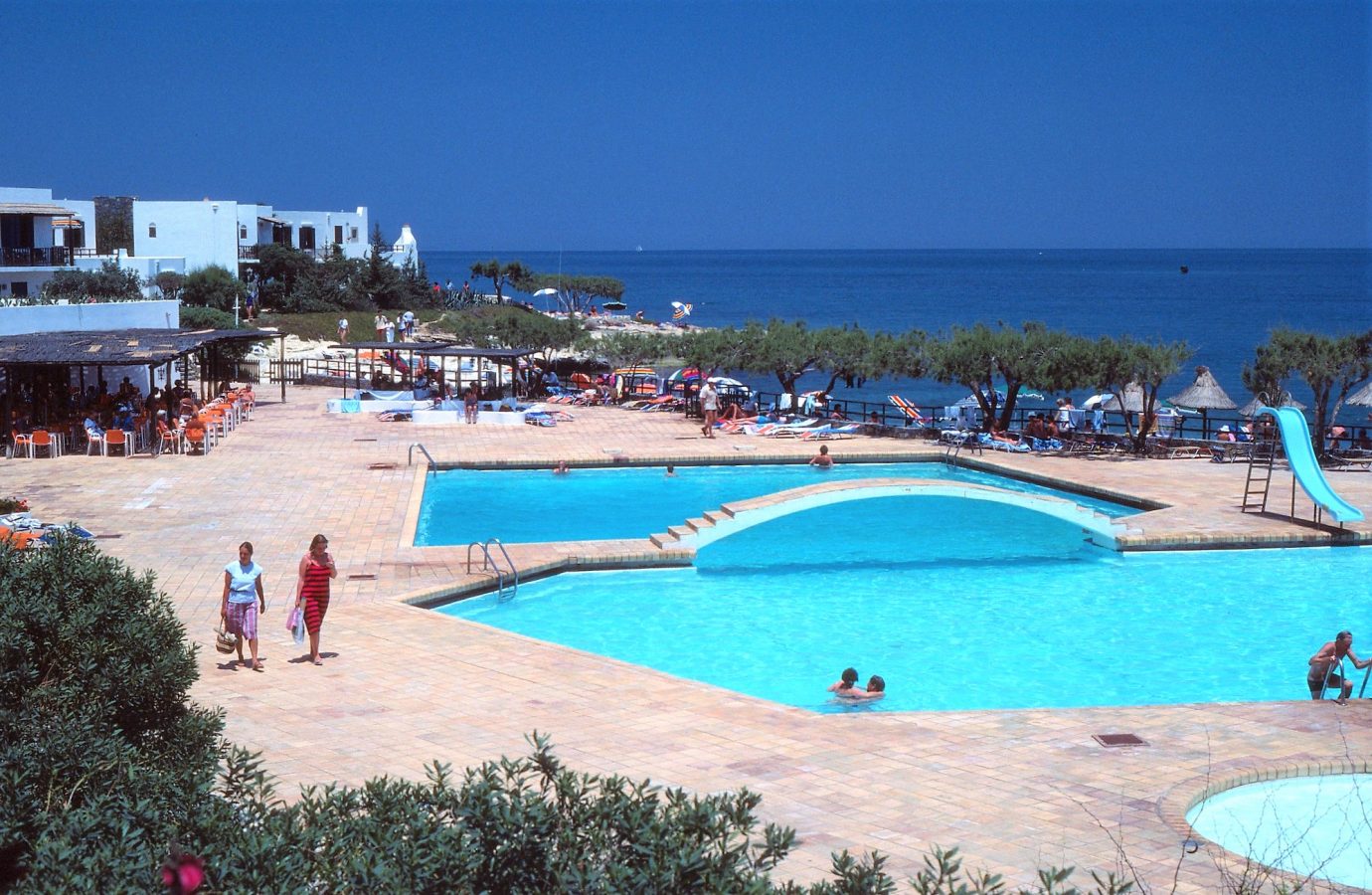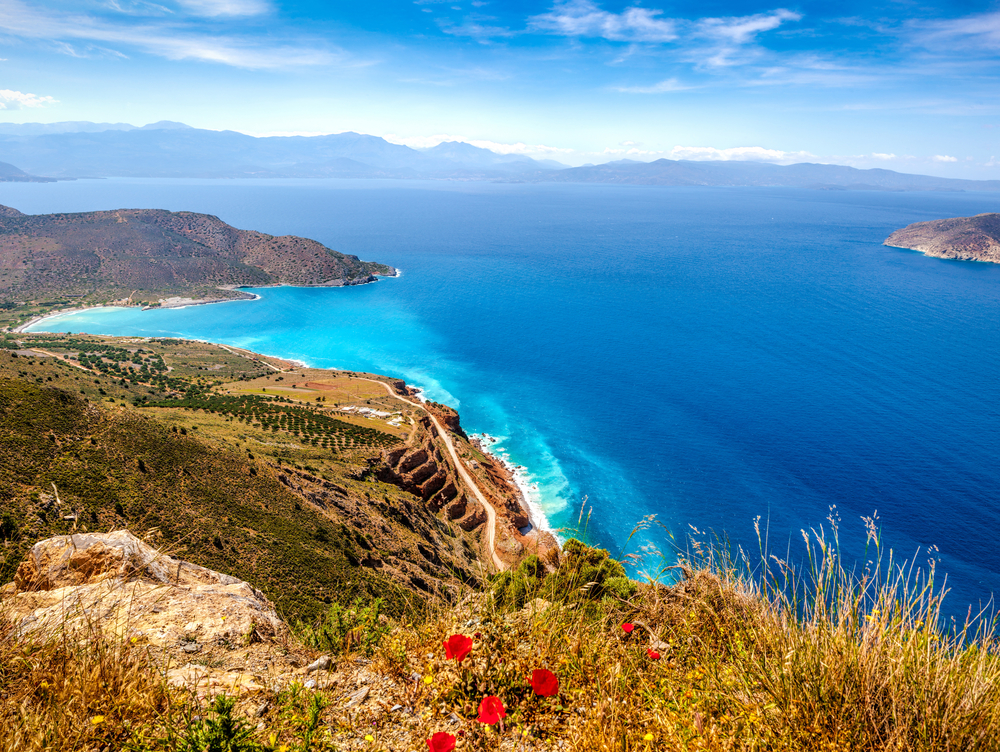Andreas Metaxas, CEO of Metaxa Hospitality Group, has been on a campaign to rebrand his hotels as models for a truly sustainable world. Metaxas seems to have some interesting (curious) ideas on what a sustainable world would look like. The Crete-based hotelier seems to have a skewed environmental vocabulary as well. And, with over tourism threatening to destroy tourism value in Greece, the question rises as to whether or not can we afford half measures and continued expansions?
Update: At 1:47 AM, Tuesday, December 7th, 2021, Konstantinos Triantafillis, the PR and Marketing Director of Metaxa Hospitality Group offered, in part, the following answer to my questions about his company’s definition and plans for sustainable hospitality. He also stated that Greece has laws about development on Crete and Santorini, and that Metaxa follows those laws.
“As you know, Metaxa Hospitality Group lies on sustainability principles since its foundation in 1975. Taking care of the environment, giving back to society, and contributing to local communities are the main pillars our sustainable philosophy, which applies from the design to the construction and the operation of our hotels.”
In a GTP story recently, Metaxas put his brand’s reputation on the line by claiming his businesses are “safeguarding the past, creating a future with respect, and protecting the environment.” If you read his words in the recent news, you might also wonder if he got confused about his company’s strategies for achieving the United Nations 17 Global Goals to be achieved by 2030? Based on Metaxa Group’s 2019-2020 sustainability report, the group’s contribution to our future is all about the same economics that would exist if Earth had limitless resources. Where’s the part where Metaxa Group decided to rebuild a couple of Crete villages and turn them into traditional life vacation experiences? Oh, sorry, innovation and out of the box thinking involved there. To continue…
Sustainability = Profits + Growth
The new report, according to the GTP story, shows that in the last two pandemic years Metaxas’ hotels paid 10.5 million euros in salaries, 2 million euros to the state, over 7.2 million euros to insurance funds, and some 702 thousand euros to local authorities. Metaxa also bragged about things like reducing energy costs, as being spurred by the “DNA” of his business, the chromosomal level caring that forgets energy efficiency is also about saving revenue. Though it is not mentioned, these numbers also suggests that Metaxas “sustained” some kind of profit. And maybe this is the ultimate definition of long range sustainability for all these hoteliers!
Metaxas goes on to spill all about his company’s contributions. From Metaxa using local products in the Futouris program, to things like traditional events, the group’s CEO seems unaware that each of these “sustainable” actions adds more value to his hospitality offer, and without heavy additional costs. Or, in other words, the group is thumping its chest over appearing to take the only logical path for Crete or Santorini hotels. Given what I know from the chefs I know who work at various resorts on Crete, the margins these operations run on are not conducive of paying Crete farmers top-price for their veggies. But, perhaps Metaxa Group has figured a way?

So, the big question remains, just how much do locals benefit from these big development projects? This report from Skift from 2014 gets at the truth of all-inclusive resort projects. And a local sustainability expert I spoke with today said, that while Metaxa group is better by far than most Crete hotel entities, the hospitality business is far from being up to the level it needs to be. A recent study published by the European Bureau of Tourism revealed that all-inclusive resorts suggested that public managers carefully assess the plusses and minuses of the all-inclusive system before approving development projects. Projects like the one Santorini locals and environmental groups are up in arms about.
After all, what kind of family oriented traveler would want to stay at a Crete resort if he or she knew all the negative impacts these huge resorts have? Would the new traveler book knowing the resort beneath their beach towel ruined the environment? And what about the safety issues in a location where avalanches and other dangers are a real concern? The video below reveals just such an avalanche just up the beach from the Metaxa development.
I reached out to Metaxa Hospitality Group this morning, but have yet to get a response to my questions about how endless expansion and development on these islands will ever be sustainable. If they respond, I will update this report accordingly.
The Endlessness of Sustainable Expansion?
As it turns out Metaxa Group has been in court over a new development in the Vlychada area of Santorini for years now. The group’s lawyers, and the company, have hammered on local officials who were against the company carrying out developments on account of environmental concerns. According to the story by GTP Managing Editor Nikos Krinis from 2018:
“The planned investment in Vlyhada – a luxury boutique hotel of 67 rooms, each with a personal swimming pool – is part of a 250 million euros investment plan of the group, scheduled to be carried out over a period of 15 years.”
Now, the Hellenic Society of Environment and Culture (Ellet) has tied up the development’s completion. Activists and environmentalists say the landscape has already been destroyed by Metaxas’ demolitions, and that the area will be further degraded once resort operations begin, should the hotel be completed. Those against the development have begged the court to find the Metaxa permits invalid. The hotel group’s general response has been to try to steamroll anyone opposed to their expansions. Officials have been accused of “abuses of power” by one of Greece’s most powerful entrepreneurs.
Save Vlyhada, one of the groups bent on stopping Metaxa, says the Vlyhada is the only area of the island that has not yet been affected by the unregulated construction. The group also claims Metaxa has put undue pressure on the lone engineer responsible for urban planning, and on Mayor Nikolaos Zorzos, who has been a sentinel watching over similar developments on the island.
Furthermore, at the same moment Andreas Metaxas is holding his family’s history and traditions out in front of his company like a badge of honor, he has plans to ruin yet another pristine coastal gem on Crete. The Cape Tholos Luxury Resort is planned for Kavousi, in one of Crete’s most magnificent natural landscapes. Building a seaside resort in this part of the island seems tantamount to a kind of sustainability sacrilege to locals I’ve talked to.
Tholos Beach, which is located 26km east of Agios Nikolaos and 4km north of the village Kavousi sits at the exit of an exquisite, fertile valley where underground freshwater springs enter the Cretan Sea. This area is surrounded by ancient olive groves and vineyards. Not far from where Metaxas intends to build, the monumental olive tree of Azorias stands as a 5,500 year-old testimony to Crete’s ancient traditions. We’ve not seen any diagrams for the planned resort, but if it looks like any other five-star all-inclusive in Crete, the development will be a catastrophe. Metaxas controls a 1,400,000 m2 (346 plus acres) Cape Tholos plot that has already been put forward to attract investors.

It would be completely unfair to end this report without recognizing the inestimable gifts the Metaxas family has made in the past decades. For instance, Nikolaos Metaxas, and his wife Theano donated (PDF) 2.229 objects from antiquity (including the unique collection of 680 Minoan engraved stones) to the Heraklion Archaeological Museum back in the late 1990s. Also, not one of the employees I know (Metaxa employs almost 700 people, mostly Cretans) from the family’s various hotels has ever uttered a negative word about the CEO or his directors. Hospitality wise, Creta Maris and the others have stellar reviews. I’ve covered their efforts many, many times.
The Great, Big, Everything You Can Eat Treat!
Take Metaxa as a case where TUI fills their hotels with guests intent on eating until they burst, and doing nothing but laying by the pool. I’ve harped on the overreliance on budget tourism until my face really is blue, but the above passage from a TUI booking from Gatwick gets my point across. For two people to fly to Crete from the UK, to stay at the Creta Maris in Hersonissos, the guests pay only a total price including airfare of £1487.20 for a week. Now, superimpose Metaxa’s so-called obligation toward sustainability.
“Following the WTTC’s International Standards for Sustainable Management Metaxa Hospitality Group has developed and maintained a comprehensive programme of sustainability, which ensures the protection of natural beauty, biodiversity and social wellbeing, while attracting quality tourism and improving local communities’ life, minimising at the same time any negative environmental and social impact.”

The big problem Metaxa and other hotel groups on Crete and other islands face is that their corporate identity and sustainability mission statements are impossible. The following blurb from a TUI booking page for Metaxa’s Creta Maris resort, clues us as to the improbability of all-inclusive resorts ever being truly sustainable.
“This hotel is a belt buckle-buster. There are six restaurants to choose from including a sea-view grill and a Greek à la carte with an open-air terrace.There are two snack bars to dine at, too.”
Protecting natural beauty by bulldozing it under. Social wellbeing and tradition supplanted by overweight British civil servants and pensioners stuffing steam table moussaka and beers down as fast as they can? The definition of “quality tourism” by Andreas Metaxas’ team is night compared to day if you ask any honest expert. And local tavernas, shops, and the abandoned villages of Crete are not feeling the love from these quality budget tourists either. Creta Maris and the other hotels might as well be cruise ships. I won’t even go low on the social impact more all-inclusive resorts will have on this island we live on.
Finally, remaining ignorant of, or strategically opposed to sincere sustainability efforts will ultimately destroy not only the good name of Metaxas, but the islands all of us love so well. A sustainable future cannot be about unbridled growth, this goes against all the natural laws. And clinging to dinosaur strategies for profit will ultimately carry an impossible long-term cost for these businesses. More importantly for these businesses, making stupid comments about saving the world for posterity, while at the same time sending an “all clear” message when you open to tourists in the middle of an unprecedented health crisis, will ultimately destroy every ounce of credibility you’ve built.